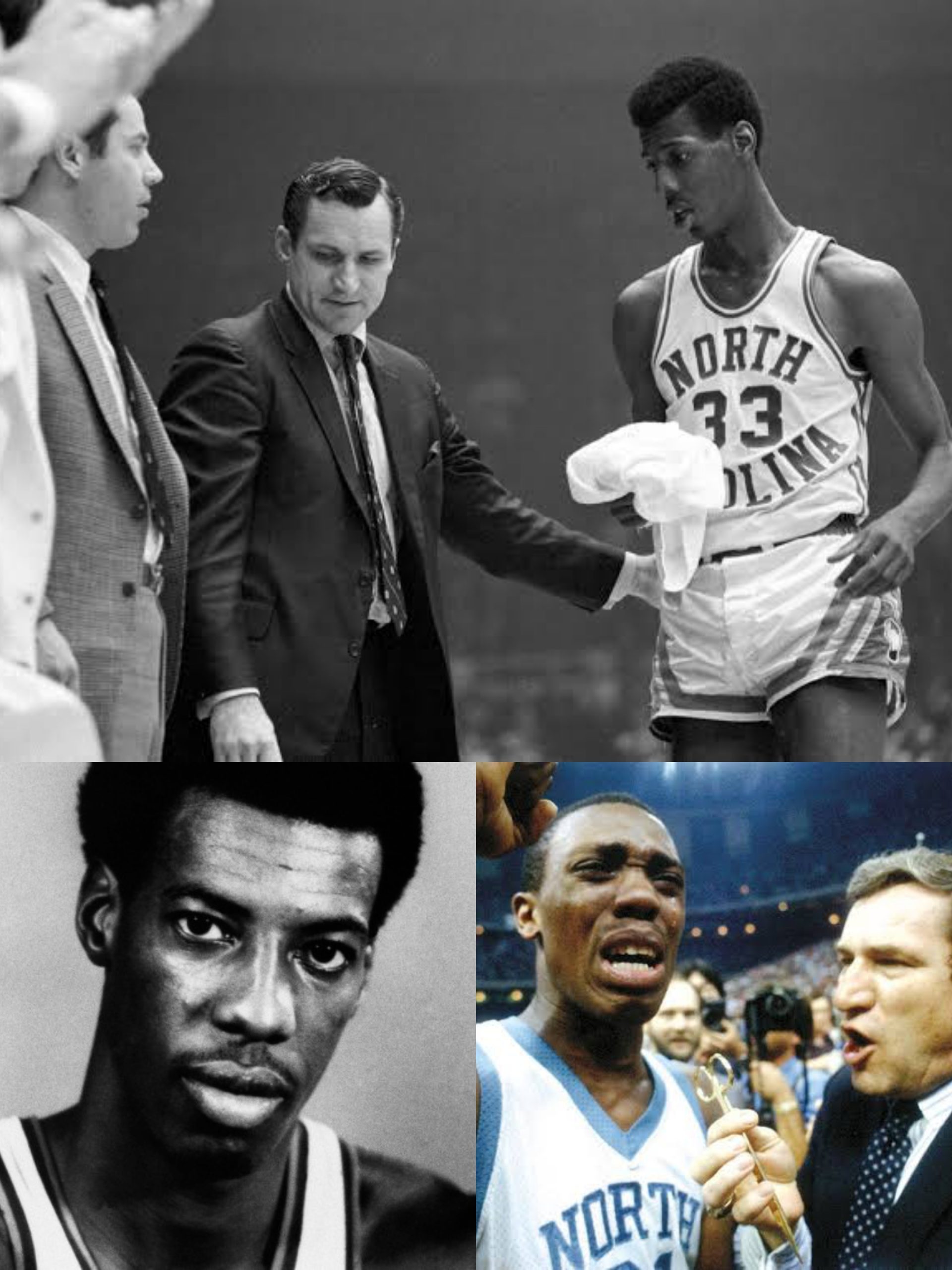🏀 The Rare Moment Dean Smith Lost His Cool Over a Shocking Slur at Charlie Scott — And How a Series of Bold Acts Off the Court Quietly Changed Chapel Hill Forever… The Shocking Moment That Left Fans Speechless — And How It Still Resonates Today
When the name Dean Smith is mentioned in Chapel Hill, it’s often followed by words like legend, innovator, and leader. But what many forget is that beyond his record-breaking coaching career at the University of North Carolina, Smith was also a man of deep conviction—one who, at times, showed a fiery side when the principles he stood for were attacked.
One such moment came during a heated game when a fan of an opposing team hurled a vile racial slur at Smith’s star player, Charlie Scott, the first Black scholarship athlete in UNC men’s basketball history. The fan screamed at Scott, calling him “a big black baboon.” The words cut through the gym like a knife.
Scott later recalled the scene vividly:
“Coach Smith got so upset about it that he had to be held back from going after the fan. It’s one of the very few times I ever saw him become that angry and that volatile. It surprised me, but it also made me proud that he was my coach.”
For a man known for his calm, almost professorial demeanor on the sidelines, this reaction was rare—and powerful. It revealed not just his loyalty to his players, but also his uncompromising stance against racism at a time when racial tensions still gripped the South.
A Fight Bigger Than Basketball
Dean Smith’s defense of Scott wasn’t an isolated gesture. Long before that incident, Smith had been quietly challenging the entrenched racial segregation of North Carolina. Shortly after the passage of the 1964 Civil Rights Act, Smith made a statement that went beyond words. He accompanied a Black student to a historically all-white restaurant in Chapel Hill.
Smith’s pastor, who was present that day, later remembered:
“Upon seeing that one of the three of us was Dean Smith, the door opened and we were served. That was the beginning of this restaurant being open to everybody.”
It was a quiet act of courage that forced change where laws alone had not yet reached.
Breaking Barriers in the Neighborhoods
In 1965, Smith took another stand when he helped Howard Lee, a Black graduate student, buy a home in an all-white neighborhood in Chapel Hill. At a time when housing discrimination was widespread, Smith’s support opened the door—literally and symbolically. Lee would later make history himself by becoming the first Black mayor of Chapel Hill, a milestone in Southern politics.
Charlie Scott: More Than a Basketball Pioneer
Charlie Scott, the young athlete who endured the ugliness of racism from fans, wasn’t just a basketball talent. He was a high school valedictorian from New York, smart, disciplined, and determined. His decision to play at UNC under Dean Smith marked a turning point for the program and for college basketball in the South. Together, Scott and Smith became symbols of change—not because they shouted about it, but because they lived it.
The Legacy That Lives On
Today, stories of Smith’s legendary basketball achievements—two national championships, 879 career wins, and the coaching tree that produced icons like Michael Jordan and Roy Williams—are often told. But moments like the one where he stood up for Charlie Scott remind us that his true greatness wasn’t just about X’s and O’s.
It was about character.
It was about courage.
It was about standing up in the face of hate—even if it meant losing his cool.
That “rare moment” when Dean Smith nearly confronted a heckler wasn’t just about defending a player. It was about defending dignity. It was about sending a message, both then and now, that respect, equality, and humanity matter more than the scoreboard.
And in doing so, Smith quietly reshaped not only the culture of Chapel Hill but also the broader conversation about race, sports, and leadership in America.




















